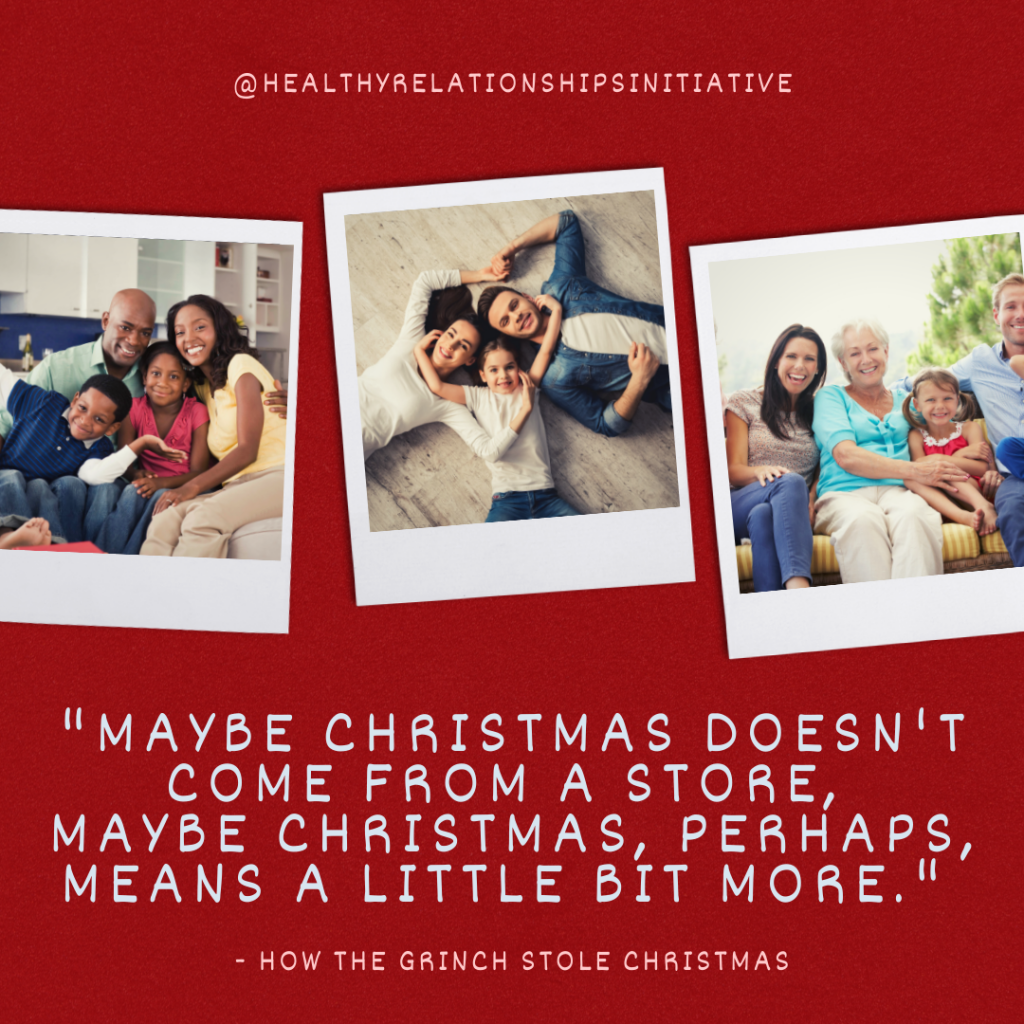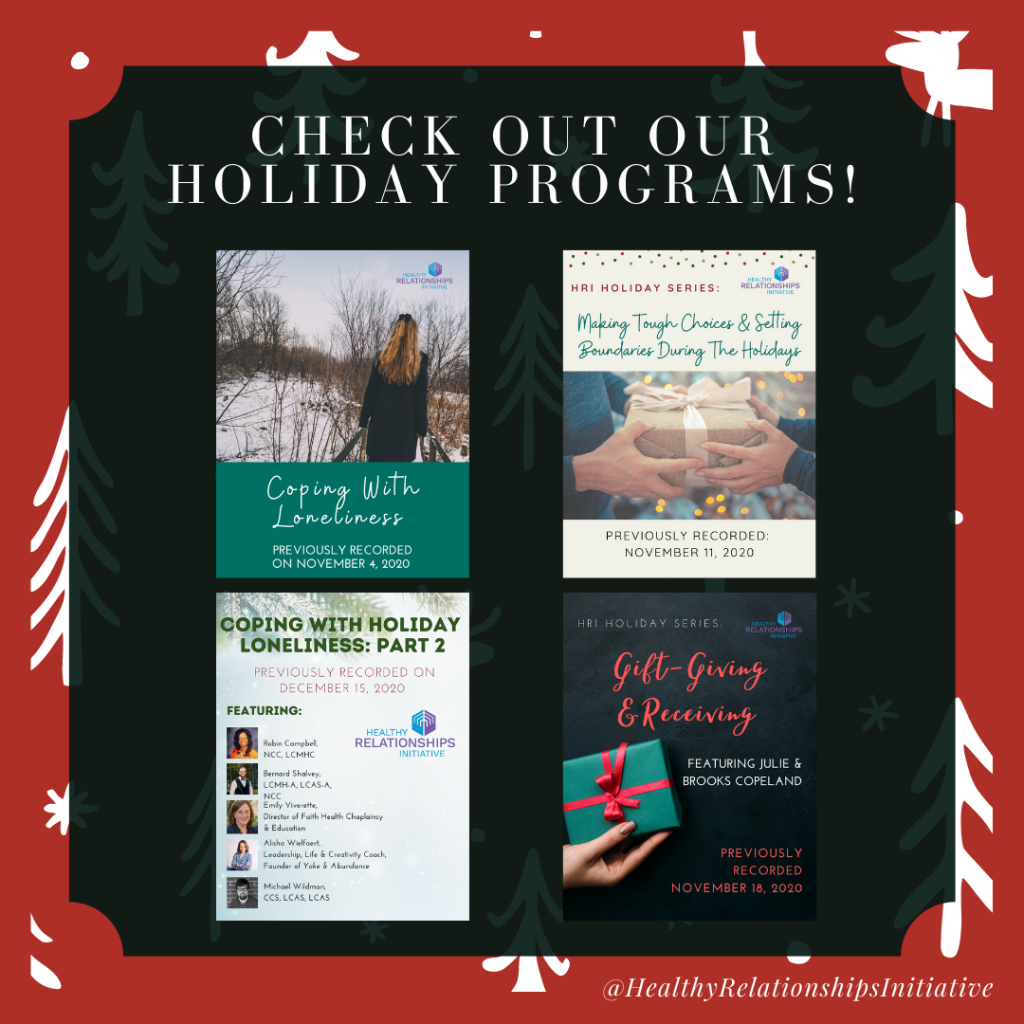
Parents know that keeping young children engaged and happy over long breaks is challenging, but doing so in a pandemic when our options for activities and engagement are limited can feel downright impossible.
At the Healthy Relationships Initiative, we’ve developed some tips to help you keep young children healthy and connected over this winter break.
Set bed time and wake up routines. Even though your kids may not have school routines to stick to, it can be beneficial to keep them on the same bed time/wake up routines as when they are in school, or to at least mirror those routines so they resemble what your kids do during the school year. Keeping their sleep times consistent can help you maintain order throughout the day, while introducing fun activities that don’t uproot your child(ren)’s schedule.
Make time for family fun. We get it — the holidays are hectic and there’s barely enough time to get anything done. But, winter break is a great time for the family to connect and have fun together. It doesn’t have to be a big event, but making time for fun throughout winter break will help the entire family stay connected. Some ideas can include playing games together, having a weekly movie night, or exercising together.
Get kids involved in chores. Winter break can be a great opportunity to teach young kids how to help out with chores around the house. Not only does having responsibilities around the house teach young children accountability and work ethic, it also helps their self-esteem when they feel like they are contributing to the household. This article offers some great tips and strategies for parents of young children to begin involving them in household chores. Start small, and you may find that your kids are heavily involved in helping you out around the house long after winter break is over!
Relax rules where you can, and enforce non-negotiable rules. This can be a tough one! We recommend going with your parental instincts. If there are rules that you can relax over winter break, such as allowing more screen time or letting young kids indulge in a little more sugar, that can help everyone in the family relax. No one wants to spend all of winter break dictating rules, but it is important to determine which ones are non-negotiable and to stay consistent in enforcing those (i.e., maybe you and your partner choose to allow more screen time, but consider bed time a non-negotiable rule).
Read together every day. The benefits to reading with your young child are endless. It stimulates their imagination, helps them understand the world, in addition to several other academic and developmental benefits. Reading together with your child every day also establishes a routine where you can spend time together without distractions. Depending on the age of your child, let them try reading, or ask them questions about the story. Bonus points if you implement a follow-up activity, such as drawing or acting out parts of the story. When you make it a point to read together every day, you’re creating a routine where your child looks forward to spending quality time with you each day, while also keeping them engaged in learning for when winter break ends.
Incorporate extended family members or pets into routines. Winter break can be fun for the entire family! Get younger children involved in helping out with pets, or in connecting with extended family members in safe ways. If Grandma can’t come over, then perhaps you can connect Grandma and your child virtually for story time. Or, maybe your child can help make sure that Rover is fed and has water in his bowl. There are a lot of ways to keep young kids connected with other family members over winter break, but parents must be intentional about making it happen.









